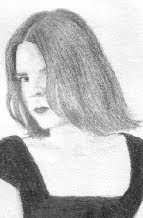 In post-war Warwickshire stands Hundreds Hall, slowly crumbling into ruin amid the shrinking lands of its estate. Mrs Ayres and her two children live in the handful of rooms not yet closed up, with only a couple of servants to help stave off decay. Roderick, injured in the war, worries incessantly about money while slowly drowning in a sea of paperwork. His plain sister Caroline settles into a life of eccentric spinsterhood. Together they cling to a way of life now past and refuse to give up a home they cannot afford.
In post-war Warwickshire stands Hundreds Hall, slowly crumbling into ruin amid the shrinking lands of its estate. Mrs Ayres and her two children live in the handful of rooms not yet closed up, with only a couple of servants to help stave off decay. Roderick, injured in the war, worries incessantly about money while slowly drowning in a sea of paperwork. His plain sister Caroline settles into a life of eccentric spinsterhood. Together they cling to a way of life now past and refuse to give up a home they cannot afford.
Into their isolated, stagnating world enters Dr Faraday, who has been fascinated by Hundreds for most of his life and soon becomes equally so by the family. By persuading Rod to undergo an experimental treatment he gains access to the house that so entranced him, and is adopted as confidante by the Ayreses. He pays no heed to the young maid’s claims of a “bad thing” in the house. He’s sure there’s a reasonable explanation for Rod’s fancies that his furniture is relocating itself. He certainly will not consider the possibility of there being something in Hundreds against which no amount of logic can offer a defence.
The 1940s may seem a little recent for the Historical Fiction Challenge, but I’m including it anyway because it’s a story that couldn’t unfold the way it does in any other time, and gives a clear picture of a bygone time. Not only surface features like rationing and the aftereffects of the war, but the deeper shift in society. In the eyes of most people the Ayreses are dinosaurs, persisting in the belief that property and birth can compensate for absence of money as they once did. Even their evening clothes belong to another time. For the general public, this colours all their conclusions about events at Hundreds. For Faraday - the son of a former Hundreds servant - their decline offers him an opportunity that would never otherwise have been his.
And he doesn’t have many qualms about taking advantage of it. He’s not the most likeable of characters; he’s class-conscious and prone to a sense of inferiority, worries chronically and pessimistically about the impending introduction of the National Health Service, and dismisses the concerns of the residents of Hundreds out of hand. He knows there’s no such things as ghosts or poltergeists or “little strangers” that have split off from a disturbed psyche and taken on a malevolent life of their own; ergo everyone else should know it too. The best thing about Faraday is his novelty value; how often do you read a gothic novel and encounter a narrator who never once succumbs to credulity?
Being a gothic novel, it naturally depends heavily on atmosphere. Not much actually happens for a book of 500 pages; but those pages all create the unshakeable conviction that sooner or later something will - and that it probably won’t be good. Hundreds Hall is a perfect setting - largely shut up, falling to pieces, without electricity every time the generator runs out of fuel. It’s a house that would hardly feel complete without a ghost, or at least the legend of one, and a place where even a complaint about the maid can seem instantly sinister.
In time, Faraday came to annoy me immensely. I am all for rationality; but the events at Hundreds reached a critical mass beyond which continued insistence upon rational explanations was no longer ... well, rational. Or they seemed to. After all, he witnessed little of it himself; most of the details came to him from people who could well be mistaken, hysterical, or just plain mad. I thought there was something strange at work, but then, I like ghost stories. Someone who doesn’t might side with the doctor. One of the novel’s greatet strengths is its power to make the reader question everything they learn and doubt their own opinions; and perhaps discover something of themselves by seeing which explanation they favour - something like a literary Rohrschach test. (For a supposedly logical scientist, I embraced the idea of a supernatural agency with alarming ease!)
The ending restored some of my certainty ... I think. It was eerie and subtly sinister and left me feeling that my theory of the nature of whatever inhabited the Hall is the correct one - if, indeed, there is a correct theory. I’m sure other readers will form their own ideas.
Rating: B

















I've borrowed this from the library a couple of times, but still haven't read it yet, or indeed any Sarah Waters. I think I would really like them, I just have to actually get around to reading them.
ReplyDeleteI finished this last week (also posted a review) and found it really good. Had been trying to get a book by this author for ages and this was my first.
ReplyDeleteI really want to read this book. I have it and two other books by Waters to read at some point.
ReplyDeleteThis looks good! A new author for me, too.
ReplyDelete